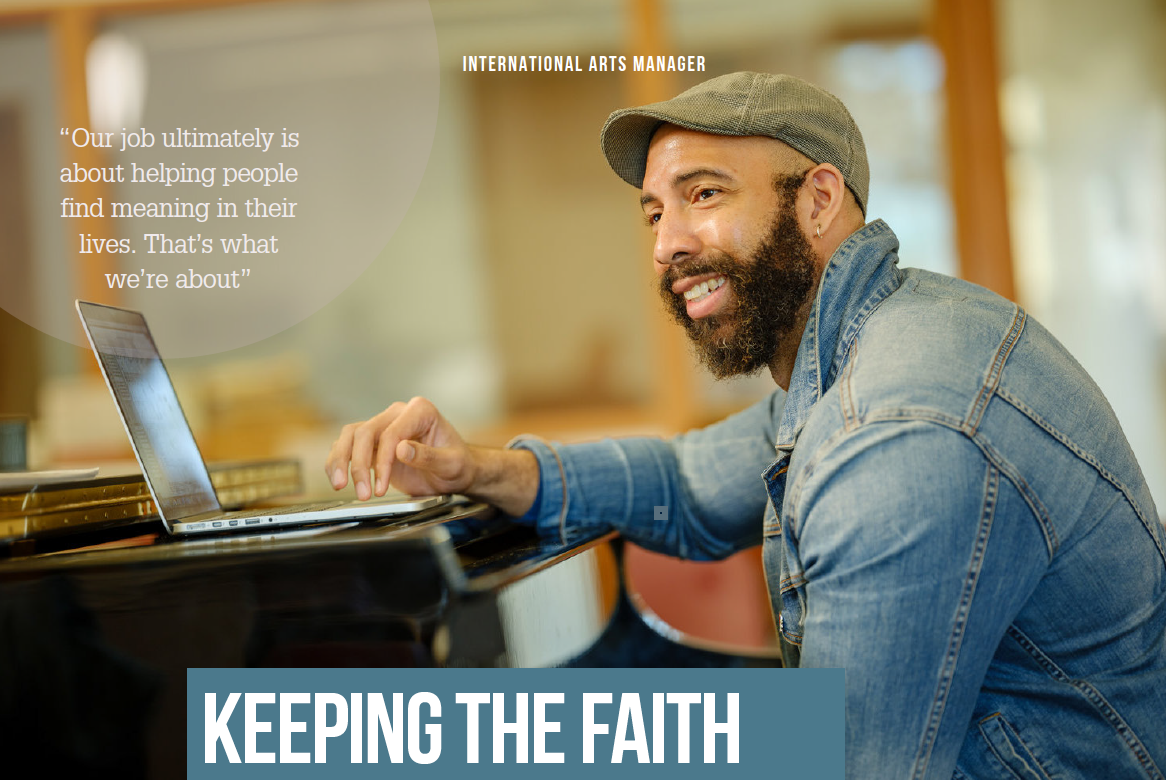TWC Executive Director Stephen Beaudoin Featured in International Arts Manager Magazine
Pictured above: Damien Geter, composer of Cantata for a More Hopeful Tomorrow
The Washington Chorus’ emphasis on loyalty and ingenuity has led to increased revenue, new audiences and cross-genre commissions. Clare Wiley hears how executive director Stephen Beaudoin navigated through the pandemic
In June 2020 The Washington Chorus (TWC) commissioned a new piece from composer Damien Geter called Cantata for a More Hopeful Tomorrow. Commissioning new music during a pandemic is one thing, but the team went one step further and asked award-winning director Bob Berg to make an accompanying film.
“Our new artistic director, Dr. Eugene Rogers, is a legend in the field,” says TWC executive director Stephen Beaudoin. “Together we share a real commitment to the intersection of music and meaning, and music and justice.” Beaudoin says he believes TWC was the first American choir to commission a new work for virtual chorus, but they wanted to “think beyond the Brady Bunch-style virtual choir” projects. “And it became clear that what would be most meaningful was a choral work that responded to the moment, which really brought to life an element of the pandemic that we can never keep far from our minds: the fact that COVID-19 has had an enormous, disproportionate impact on Black and Brown families,” he adds.
Geter “chose to pay homage to the ancestors and Black Americans by incorporating [African American] spirituals” in the work. Led by Dr. Rogers, the cantata features soprano Aundi Marie Moore, cellist Seth Parker Woods and over 100 singers of the chorus. The singers recorded on their phones individually at home, with the results mixed together in post-production. The premiere of the film, a COVID love story starring actors Kyle Greenlaw and Kim McKissack, was watched by 1,000 people with an estimated additional 2,000 watching the film through private showings, Vimeo sales, online screenings and licensed showings.
Behind the scenes of TWC’s Cantata for a More Hopeful Tomorrow with Artistic Director Eugene Rogers and cellist Seth Parker Woods
The project is emblematic of how TWC, under Beaudoin’s direction, has navigated the pandemic — which incidentally coincided with its 60th anniversary season. After the initial weeks of “panic, dread and denial”, he says the organisation’s approach was to leverage their assets: the Emmy-award winning Dr. Rogers, who was only in his first season, and the “147 singers who stuck with us this season”.
Says Beaudoin: “We made some real investments in projects; we could have simply recycled old material or rebroadcast old concerts. But our approach was let’s be creative and lead with our mission, [which is] to bring people together through the unique power of singing.”
That meant fostering existing relationships with audiences and patrons – as well as developing new ones. Singers from around the world were invited to ‘virtual open sings’. Beaudoin says the organisation saw a big spike in both financial contributions and (remote) attendance from people who hadn’t encountered the chorus before. “We have a very special relationship with the District of Columbia, [but] at the same time we saw this as an opportunity to have more seats at the table.”
Core guiding principles for TWC through the crisis have been loyalty and stewardship – and that applies to everyone from audiences and donors, to staff and singers. “So making sure we never forget that our institution is comprised of, and powered by, people” Beaudoin says engaging in frank discussions with donors is critical. “So often, organisations can have this patronising view of donors, viewing them only through the lens of the bank account they bring with them. My lens for supporters is: this person is here because they’re committed to our mission. This person is here because they have a certain value set that they believe aligns with our organisation, and they want their support to make an impact.”
Having “real conversations” with supporters about the long-term financial picture and TWC’s needs “can profoundly shape the institution”. The choir has doubled the number of donor households from the last fiscal year to this one, and donor retention has never been higher.
This notion of loyalty extends to the chorus itself, most of which is made up of voluntary singers. “We can never take that for granted,” says Beaudoin. “Our business model is predicated on the ability to attract and retain extremely talented and dedicated volunteers. So we need to make sure that we’re providing thoughtful engagement and stewardship for our chorus members.”
TWC Executive Director Stephen Beaudoin and Artistic Director Eugene Rogers chat on web series TWC TV
For his staff, compassion seems to be front of mind. “We have to start by understanding that every staff member is a human being experiencing what’s happened in the last year in very different ways. For some people, it has been a tremendous gift in terms of being able to connect with family, and have time at home with loved ones or pets. And for other people, it has been impossible beyond words.”
Whether it’s offering coaching and professional development, or throwing online happy hours and treating his staff to lunch, Beaudoin tries to “lead from a place of real support and care”.
However, Beaudoin acknowledges that the pandemic has “severely challenged his predictive powers” as a chief executive. “We have to instead think more probabilistically and be more comfortable with more uncertainty,” he says.
TWC’s approach to getting through COVID is clearly working. Efforts to strengthen cash flow by “slowing down our spending and being very strategic about where we are investing” have been successful. Prior to the pandemic the organisation may have had only a month or two of cash reserves; this has now been extended to 10 months.
“Part of what’s driving our business success at TWC through this unprecedented time is that I’m applying what I’m learning as an Executive MBA student at University of Virginia Darden School of Business,” adds Beaudoin.
“We have outperformed in all of our revenue categories,” Beaudoin continues. TWC’s digital live stream Candlelight Christmas was budgeted at USD20,000 in earned revenue; it actually made USD35,000. Meanwhile the virtual open sings series, co-produced with Berkshire Choral International, brought in just above USD33,000 in new earned revenue.
Filming TWC’s virtual Candlelight Christmas at Strathmore Music Center in North Bethesda, Maryland
Another success came from initiatives that allowed customers to buy personalised musical video messages from the singers for their loved ones. Both Valentines on Demand and Carols on Demand were hits, generating USD23,000 in new revenue.
Undoubtedly, one of the critical components in TWC’s ability to reach new listeners and donors, of course, is the move to digital programming. But Beaudoin’s take on the opportunities of the digital migration is more nuanced than you might expect.
“There’s a pervasive view right now that’s like, ‘We all did the digital thing, and we just need to get rid of that and get back to what we really do, which is in-person [concerts]’,” he says. “And our view is digital artistic experiences should be part of our vision moving forward – alongside those things we do in person.”
The experience of sitting in a concert hall, with the vibrancy of in-person singing, is different to putting in your earbuds and walking down the street. That, in turn, is different to sending a custom song to a loved one.
“The argument I want to advance is that all ways of experiencing music are meaningful,” Beaudoin says. “And so we have to be interested in creating – I hate the word content – but creating art that many people can experience in many ways.”
This moment has also given TWC the opportunity to interrogate who its audience is, and who they want their audience to be. “We don’t know that yet,” Beaudoin says. “We know that we don’t want it to be only white folks. And we also know know that we don’t want it to be only 22-year-olds.”
He points out that the audience will also differ depending on the platform; users on YouTube may not be the same people seated in the concert hall. “We hope that again if we’re doing a good job of engendering loyalty, that people will feel part of a community.”
Read the full article HERE.




